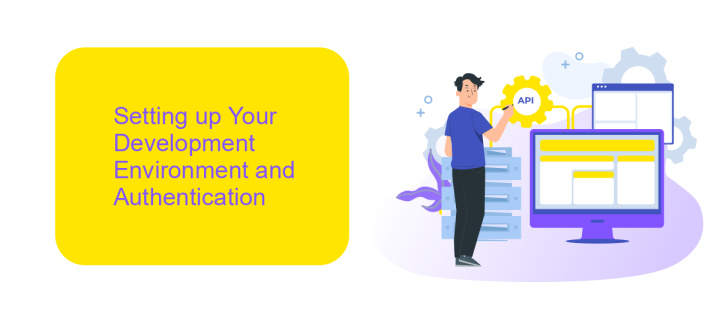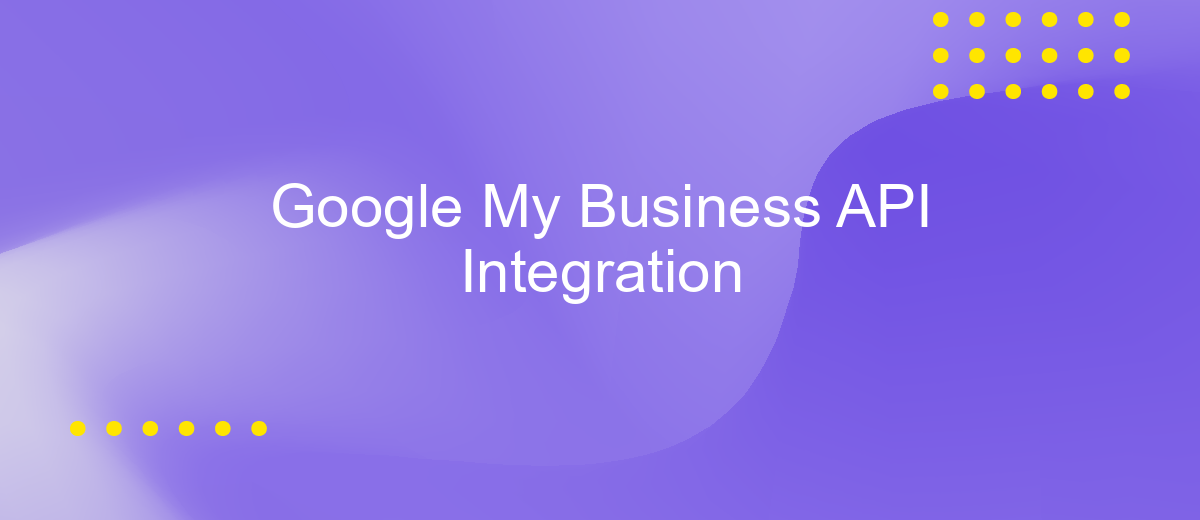Google My Business API Integration
Integrating the Google My Business API into your digital strategy can significantly enhance your online presence and streamline business operations. This powerful tool allows businesses to manage their Google My Business listings efficiently, update crucial information in real-time, and engage with customers more effectively. By leveraging the API, companies can ensure accurate data across Google Search and Maps, ultimately boosting visibility and customer trust.
Introduction to Google My Business API
The Google My Business API is a powerful tool that allows businesses to manage their online presence across Google services. By integrating with this API, businesses can efficiently update their business information, respond to customer reviews, and manage their Google My Business listings from a centralized platform. This integration is crucial for businesses looking to maintain accurate and up-to-date information on Google Search and Maps, enhancing their visibility and customer engagement.
- Automate updates to business information such as address, phone number, and hours of operation.
- Manage customer reviews and respond promptly to enhance customer satisfaction.
- Create and manage posts to engage with customers and share updates.
- Access insights and analytics to understand customer interactions and improve business strategies.
By leveraging the Google My Business API, businesses can streamline their operations and ensure a consistent and professional online presence. This integration not only saves time but also helps businesses to tap into valuable insights about customer behavior and preferences. As a result, companies can make informed decisions, increase their reach, and ultimately drive growth in a competitive digital landscape.
Setting up Your Development Environment and Authentication

To begin integrating with the Google My Business API, you must first set up your development environment. Start by ensuring you have a Google Cloud Project. Navigate to the Google Cloud Console, create a new project, and enable the Google My Business API. Once the API is enabled, you'll need to set up OAuth 2.0 credentials. This involves creating a new set of credentials in the API & Services section and configuring the consent screen to specify what information your application will access. Make sure to download the JSON file containing your credentials, as it will be crucial for authentication.
Authentication is a key step in securing your API integration. Use the OAuth 2.0 protocol to authenticate requests to the Google My Business API. If you're looking for a simpler way to handle integration, consider using ApiX-Drive, a platform designed to streamline API connections without extensive coding. ApiX-Drive can facilitate the authentication process, allowing you to connect with the Google My Business API effortlessly. By leveraging such tools, you can focus more on building your application rather than getting bogged down in complex setup procedures.
Core GMB API Features and Implementation

The Google My Business (GMB) API is a powerful tool that enables businesses to manage their online presence across Google Search and Maps efficiently. By integrating GMB API, businesses can automate the management of their business listings, ensuring accurate and up-to-date information is available to potential customers. This integration is crucial for businesses looking to enhance their local SEO and maintain a competitive edge in their respective markets.
- Location Management: Easily create, update, and delete business locations to ensure consistent information across all platforms.
- Review Monitoring: Access and respond to customer reviews in real-time, helping to improve customer engagement and satisfaction.
- Insights and Analytics: Gain valuable insights into customer interactions and search performance to make informed business decisions.
Implementing the GMB API requires a clear understanding of its features and functionalities. Businesses should ensure they have the necessary technical resources and expertise to leverage the API effectively. By doing so, they can streamline operations, enhance customer experience, and ultimately drive more traffic to their physical and online locations. With the right approach, GMB API integration can be a game-changer for businesses aiming to optimize their local presence.
Advanced GMB API Techniques and Best Practices

Integrating Google My Business (GMB) API into your applications can significantly enhance your business's online presence. To maximize the benefits, it's essential to explore advanced techniques and best practices. By leveraging the full potential of the GMB API, businesses can streamline their operations and improve customer engagement.
One advanced technique is automating the management of multiple locations. This can be particularly beneficial for businesses with a widespread presence. By using the API to automate updates and responses, businesses can ensure that their information remains consistent and up-to-date across all platforms. Additionally, implementing real-time data analysis can provide valuable insights into customer behavior and preferences.
- Ensure secure authentication by using OAuth 2.0 protocols.
- Regularly monitor API usage to avoid exceeding quota limits.
- Utilize batch requests to optimize performance and reduce latency.
- Implement error handling to manage API response errors effectively.
By following these best practices, businesses can make the most of the GMB API, ensuring efficient management of their online presence. Staying informed about updates and changes to the API is crucial for maintaining optimal functionality and leveraging new features as they become available.
Maintaining and Troubleshooting Your GMB API Integration
Maintaining your Google My Business (GMB) API integration involves regular monitoring and updates to ensure seamless performance. Begin by setting up automated alerts to track API usage and potential errors. Regularly review your API access settings and permissions to prevent unauthorized access. Implement version control to manage updates effectively and ensure compatibility with the latest GMB API features. Utilizing services like ApiX-Drive can simplify this process by providing tools to automate data synchronization and monitor API health, reducing manual intervention.
Troubleshooting your GMB API integration requires a systematic approach. Start by examining error logs to identify recurring issues. Ensure that your API requests comply with GMB guidelines and check for any recent changes in the API documentation that might affect functionality. If problems persist, consider reaching out to Google support or engaging with developer communities for insights. Additionally, ApiX-Drive can offer support through its integration platform by providing detailed analytics and troubleshooting tools to quickly diagnose and resolve issues, ensuring minimal downtime and optimal performance.
FAQ
What is Google My Business API and how can it benefit my business?
How can I integrate Google My Business API into my existing systems?
What are the prerequisites for accessing the Google My Business API?
Can I automate review management with Google My Business API?
Is there a way to update multiple locations at once using the Google My Business API?
Strive to take your business to the next level, achieve your goals faster and more efficiently? Apix-Drive is your reliable assistant for these tasks. An online service and application connector will help you automate key business processes and get rid of the routine. You and your employees will free up time for important core tasks. Try Apix-Drive features for free to see the effectiveness of the online connector for yourself.

